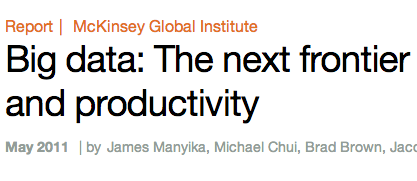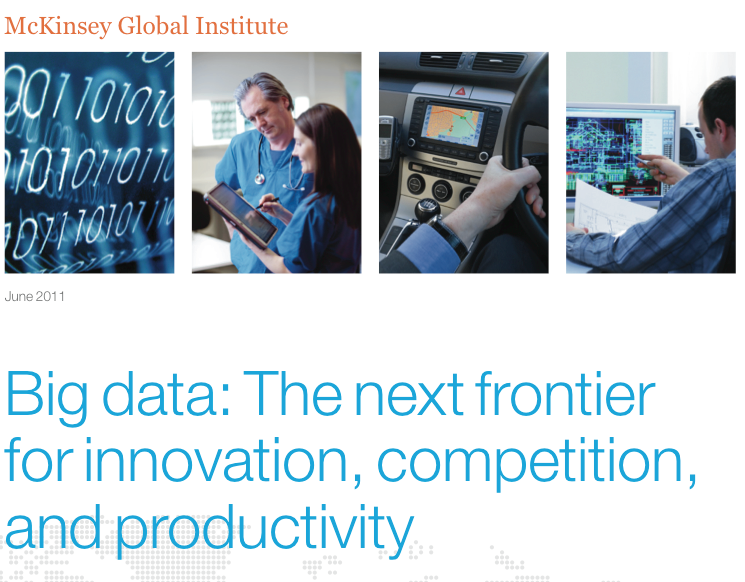On Big Data
McKinsey's analysis claims that:
“If US healthcare were to use big data creatively and effectively to drive efficiency and quality, the sector could create more than $300 billion in value every year. Two-thirds of that would be in the form of reducing US healthcare expenditure by about 8 percent.”
The study goes on to identify five ways of capturing business value from big data.
“First, big data can unlock significant value by making information transparent and usable at much higher frequency.
Second, as organizations create and store more transactional data in digital form, they can collect more accurate and detailed performance information on everything from product inventories to sick days, and therefore expose variability and boost performance. Leading companies are using data collection and analysis to conduct controlled experiments to make better management decisions; others are using data for basic low-frequency forecasting to high-frequency nowcasting to adjust their business levers just in time.
Third, big data allows ever-narrower segmentation of customers and therefore much more precisely tailored products or services.
Fourth, sophisticated analytics can substantially improve decision-making.
Finally, big data can be used to improve the development of the next generation of products and services. For instance, manufacturers are using data obtained from sensors embedded in products to create innovative after-sales service offerings such as proactive maintenance (preventive measures that take place before a failure occurs or is even noticed).”

